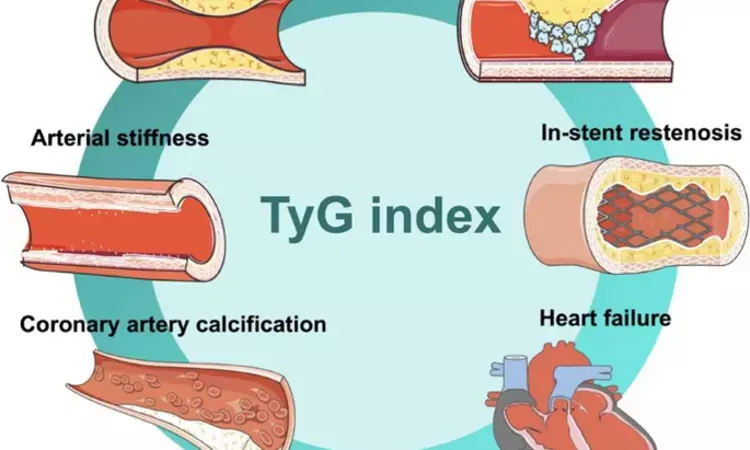- Home
- Medical news & Guidelines
- Anesthesiology
- Cardiology and CTVS
- Critical Care
- Dentistry
- Dermatology
- Diabetes and Endocrinology
- ENT
- Gastroenterology
- Medicine
- Nephrology
- Neurology
- Obstretics-Gynaecology
- Oncology
- Ophthalmology
- Orthopaedics
- Pediatrics-Neonatology
- Psychiatry
- Pulmonology
- Radiology
- Surgery
- Urology
- Laboratory Medicine
- Diet
- Nursing
- Paramedical
- Physiotherapy
- Health news
- Fact Check
- Bone Health Fact Check
- Brain Health Fact Check
- Cancer Related Fact Check
- Child Care Fact Check
- Dental and oral health fact check
- Diabetes and metabolic health fact check
- Diet and Nutrition Fact Check
- Eye and ENT Care Fact Check
- Fitness fact check
- Gut health fact check
- Heart health fact check
- Kidney health fact check
- Medical education fact check
- Men's health fact check
- Respiratory fact check
- Skin and hair care fact check
- Vaccine and Immunization fact check
- Women's health fact check
- AYUSH
- State News
- Andaman and Nicobar Islands
- Andhra Pradesh
- Arunachal Pradesh
- Assam
- Bihar
- Chandigarh
- Chattisgarh
- Dadra and Nagar Haveli
- Daman and Diu
- Delhi
- Goa
- Gujarat
- Haryana
- Himachal Pradesh
- Jammu & Kashmir
- Jharkhand
- Karnataka
- Kerala
- Ladakh
- Lakshadweep
- Madhya Pradesh
- Maharashtra
- Manipur
- Meghalaya
- Mizoram
- Nagaland
- Odisha
- Puducherry
- Punjab
- Rajasthan
- Sikkim
- Tamil Nadu
- Telangana
- Tripura
- Uttar Pradesh
- Uttrakhand
- West Bengal
- Medical Education
- Industry
High triglyceride glucose index in latent autoimmune diabetes linked with severe CKD

High triglyceride glucose index in latent autoimmune diabetes linked with severe CKD suggests a new study published in the BMC Endocrine Disorders
Insulin resistance (IR) is one of the risk factors for chronic kidney disease (CKD) and diabetes. The triglyceride–glucose (TyG) index is considered a reliable alternative marker of IR. We investigated the correlation between the TyG index and the severity of CKD in patients with latent autoimmune diabetes in adults (LADA).
This cross-sectional study included 288 patients with LADA in the department of endocrinology at our hospital between January 2018 and January 2022. The TyG index was calculated as Ln [TG (mg/dl) × fasting blood glucose (FBG) (mg/dl) / 2]. All individuals were divided into either a LADA + CKD group or a LADA + non-CKD group according to the presence or absence of CKD. A correlation analysis, logistic regression analysis and receiver operating characteristics curve analysis were performed.
Results
A total of 130 (45.1%) participants were identified as having CKD. Compared with the non-CKD group, the CKD group had a longer disease duration and a higher proportion of smokers; patients were more likely to have hypertension and higher serum creatinine, triglyceride, cholesterol, low-density lipoprotein cholesterol, FBG, uric acid estimated glomerular filtration rates (eGFR) and TyG levels as well as lower high-density lipoprotein cholesterol levels (all P < 0.05). The positive relationship between the TyG index and the urinary albumin/creatinine ratio was significant (r = 0.249, P = 0.010). There was also a significant correlation between the TyG index and the eGFR (r = − 0.211, P = 0.034) after adjusting for confounding factors. The area-under-the-curve value of the TyG index was 0.708 (95% confidence interval: 0.61–0.81, P < 0.001).
The TyG index is significantly associated with the severity of CKD in patients with LADA. This conclusion supports the clinical application of the TyG index for the assessment of kidney disease in patients with LADA.
Reference:
Fu, X., Xu, Z., Tan, Q. et al. Association between a high triglyceride–glucose index and chronic kidney disease in adult patients with latent autoimmune diabetes. BMC Endocr Disord 23, 209 (2023). https://doi.org/10.1186/s12902-023-01465-5
Keywords:
High, triglyceride, glucose, index, latent, autoimmune, diabetes, linked, severe, CKD, BMC Endocrine Disorders, Fu, X., Xu, Z., Tan, Q.
Dr. Shravani Dali has completed her BDS from Pravara institute of medical sciences, loni. Following which she extensively worked in the healthcare sector for 2+ years. She has been actively involved in writing blogs in field of health and wellness. Currently she is pursuing her Masters of public health-health administration from Tata institute of social sciences. She can be contacted at editorial@medicaldialogues.in.
Dr Kamal Kant Kohli-MBBS, DTCD- a chest specialist with more than 30 years of practice and a flair for writing clinical articles, Dr Kamal Kant Kohli joined Medical Dialogues as a Chief Editor of Medical News. Besides writing articles, as an editor, he proofreads and verifies all the medical content published on Medical Dialogues including those coming from journals, studies,medical conferences,guidelines etc. Email: drkohli@medicaldialogues.in. Contact no. 011-43720751


